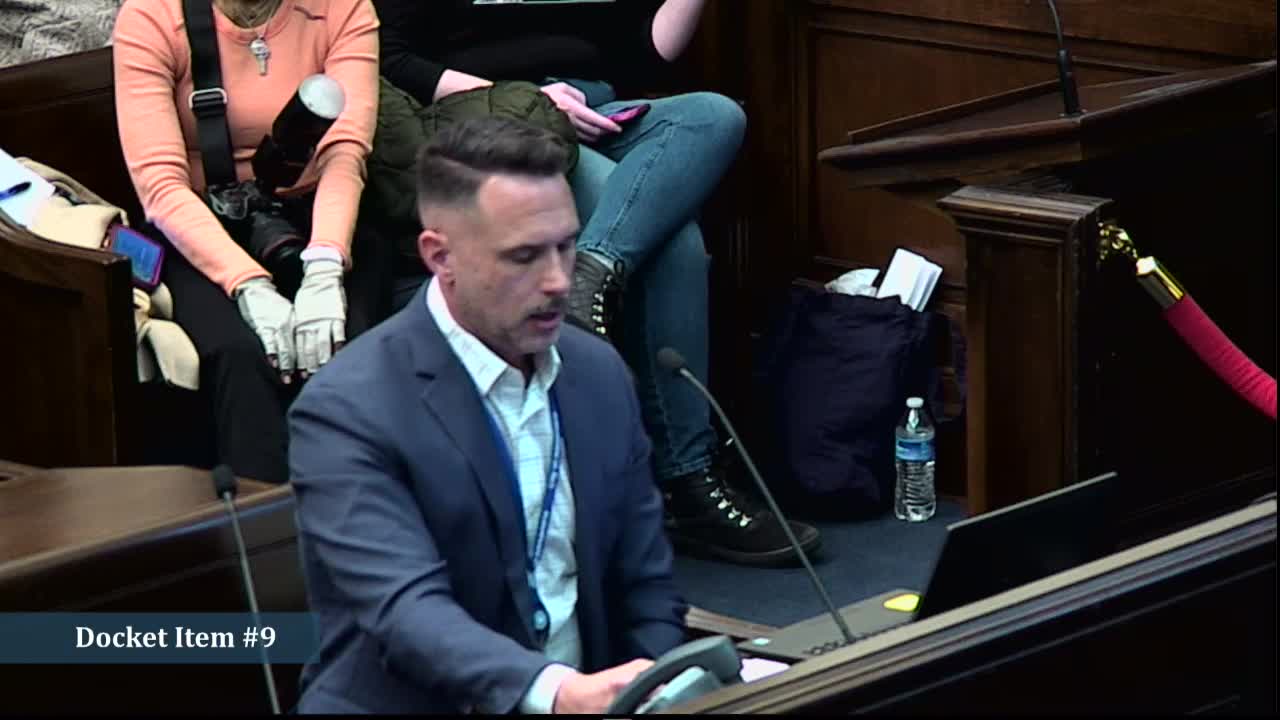Alexandria council approves short-term rental rules, adds director discretion for central area
Get AI-powered insights, summaries, and transcripts
Subscribe
Summary
After months of study and public comment, the City Council approved a zoning text amendment to regulate short-term residential rentals, imposing occupancy limits, a permit requirement, a “good neighbor” guide and parking rules while allowing the planning director discretion inside the enhanced transit area.
Alexandria City Council on Saturday approved a zoning text amendment that creates a permitting system and new operating standards for short-term residential rentals in the city, with a late amendment giving the planning director discretion on parking arrangements inside the enhanced transit area.
The ordinance, proposed by city staff and recommended by the Planning Commission, is intended to curb problems residents and staff cited most often — noise, trash, parking and large “party” gatherings — while preserving short-term lodging options and tourism revenue.
Staff framed the change as modest and targeted. Tony Lecola, land use services division chief, told the council the city’s third‑party monitoring found roughly 600–700 short‑term listings at peak season and 62 complaints reported to the city between 2018 and 2025. “We want responsible short‑term rental operations that benefit visitors and address the most common concerns we’ve heard from residents,” Lecola said.
Under the new rules the city will: require a permit for any short‑term rental operating more than 10 days a year; cap occupancy at two persons per bedroom plus two additional guests (children under 3 excluded) with an absolute cap of 10; ban parties and events that exceed the occupancy limit in residential zones; require a posted good‑neighbor guide and 24/7 local agent contact information; and set parking expectations — 0.7 spaces per bedroom outside the enhanced transit area and 0.25 spaces per bedroom within it, with allowance to count up to two on‑street spaces when on‑site parking is unavailable.
Staff said the application will require operator and local agent contact information, ownership or rental documentation, a parking plan and notice to abutting property owners. “Operators must be reachable by phone 24 hours a day, seven days a week,” Lecola said. Carl Moritz, director of planning, added that repeat violations or failure to obtain a permit could lead to permit denial or relocation, with appeal rights to the Board of Zoning Appeals.
Owners and operators who testified were split. Jordan Wright, who operates a long‑standing, in‑home listing, told council that short‑term rental income allowed her to remain in her house and that marketplace and platform review systems already penalize bad guests. “I meet all my guests when they arrive at my home,” Wright said. Rallying support for regulation that preserves operating options, Boyd Walker — an Old Town operator who said his business generated lodging and sales tax revenue — warned that heavy-handed restrictions could reduce city tax receipts. “If you’re not prepared to raise the tax rate, I suggest that you not try to restrict Airbnbs,” Walker said. Several speakers from Old Town urged exemptions or flexibility for very old buildings with no on‑site parking.
Council discussion centered on the parking standard and enforcement. Vice Mayor Bagley proposed — and moved — an amendment that approved the staff recommendation while allowing the planning director to accept an alternative parking arrangement for short‑term rentals located in the enhanced transit area. Councilmember McPike seconded the motion. Director Moritz told council the added discretion was intended to address edge cases where strict linear distances would be impractical, and staff agreed to draft a reasonableness standard.
Council also discussed enforcement staffing. Staff said a short‑term rental program manager and a 24/7 hotline are planned, funded by a proposed permit fee and included in the fiscal 2026 budget proposal; the city would hire an additional noise inspector in that budget as well. Lecola said the permit system rollout is planned for fall 2025 and that staff will phase in outreach and enforcement to allow operators time to comply.
Supporters and opponents both asked for predictable, transparent implementation. Catsby Jones, who operates a one‑bedroom unit in Old Town, urged the council not to require on‑site parking in dense, historic neighborhoods, saying most guests arrive by train or rideshare and the requirement would “cut off a valuable income source for residents.”
The council voted to approve the amendment and pass the zoning text change. Staff and council said they will follow with an online permit portal, a public education campaign and a phased compliance window ahead of the fall 2025 permit launch.
